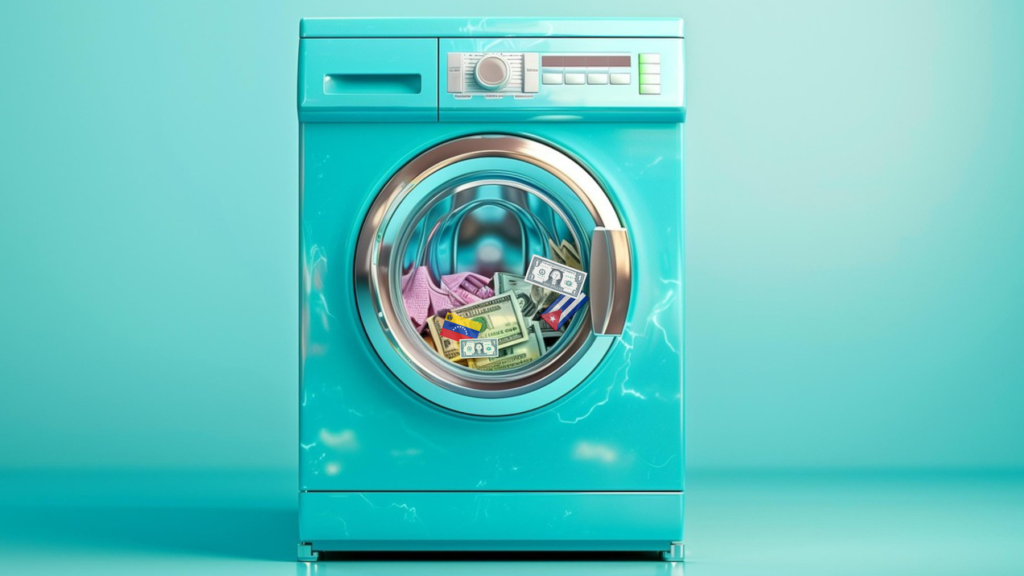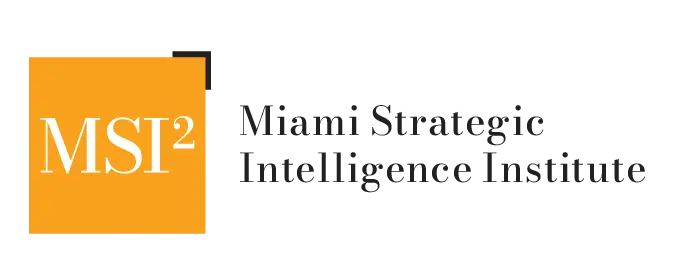23 Apr Strategic Analysis of Money Laundering Networks Linked to Cuba and Others Through Panama: Cases, Actors, and Regime Connections
By,
William Acosta, SME, MSI² & Jesús Daniel Romero, Co-Founder and Senior Fellow, MSI²
Money laundering is a transnational threat that employs corporate structures, tax havens, and international banking systems to conceal the illicit origin of funds, undermining global financial stability and facilitating crimes such as drug trafficking and corruption (14ymedio, 2016; Martí Noticias, 2016).
Due to its flexible financial system and role as a logistical hub, Panama has become a key point for laundering schemes involving companies and individuals from various countries, including Cuba and Venezuela (CubitaNOW, 2025). Federal investigations, international leaks, and journalistic reports have documented how businessmen, state-owned companies, and figures linked to the Cuban regime have used offshore structures and Panamanian banks to launder illicit funds or evade international sanctions (Martí Noticias, 2016; elTOQUE, 2020).
Schemes and Modus Operandi
Money laundering between Cuba and Panama is characterized by the use of shell companies, international transfers, structured deposits, and multiple currencies, including U.S. dollars, euros, Cuban pesos, and Venezuelan bolívars (WPLG, 2024; Martí Noticias, 2016). Common methods include creating front companies in Panama, simulating commercial transactions, using third-party identities and bank cards, and triangulating funds through accounts in U.S. and European banks (14ymedio, 2016; Martí Noticias, 2016).
Recent High-Value Cases and Federal Charges
In January 2025, a Cuban national arriving from Havana was arrested at Panama Pacifico International Airport attempting to enter the country with $25,000 in cash hidden inside a book. The passenger declared only $9,000, but a secondary inspection revealed the full amount. The funds were seized and placed under investigation by Panama’s Public Ministry for potential money laundering (Directorio Cubano, 2025; Periódico Cubano, 2025; CiberCuba, 2025a).
That same month, Interpol and Panamanian authorities arrested a Cuban citizen in Panama City wanted by the United States for financial fraud and laundering nearly $600,000. The operation, dubbed “Operation Mayabeque,” revealed the use of sophisticated methods to defraud U.S. victims and conceal funds through advanced money laundering techniques. The detainee is facing extradition to the United States (CubitaNOW, 2025; CiberCuba, 2025b).
Between 2022 and 2024, Manuel Alejandro Rojas, with connections in Cuba, Venezuela, Panama, and Spain, led a scheme that laundered more than $3.38 million. The operation involved creating shell companies in Panama (Lay Investments, Bempaco XVI), making hundreds of cash deposits in U.S. banks such as Truist and JP Morgan Chase, transferring funds to accounts in Panama and Spain, and using multiple identities and currencies. The case was prosecuted in U.S. federal courts, highlighting international cooperation and the complexity of these schemes (WPLG, 2024; Cuba en Miami, 2024).

Cuban State-Owned Enterprises and Offshore Structures
Leaks from the Panama Papers and Pandora Papers revealed numerous Cuban state-owned enterprises registered as offshore companies in Panama, including Técnica Hidráulica S.A., Amadis Compañía Naviera S.A., B.B. Naft Trading S.A., Pescatlan S.A., Acepex Management S.A., Comercial Mercadu S.A., Travelnet LTD, Resimevis Limited, Mavis Group S.A., and Octagon Industrial LTD. These companies, managed by regime officials and representatives, have been used to conduct commercial operations outside the scope of the U.S. embargo and to move capital beyond the reach of foreign regulators (Martí Noticias, 2016; 14ymedio, 2016; elTOQUE, 2020).
Names Linked to the Cuban Regime
Investigations and leaks have connected figures of the Cuban regime and businesspeople close to the government with the management or representation of offshore companies in Panama. Frequently mentioned names in international press and leaked documents include Wilfredo Leyva Armesto, an official of the Cuban Institute of Hydraulic Resources, linked to Técnica Hidráulica S.A.; as well as executives of Corporación Panamericana S.A., a company under the Ministry of Foreign Trade created in Panama to manage enterprises abroad. Additionally, the Panama Papers connected relatives of senior military officials and the Business Administration Group S.A. (GAESA) with offshore entities (Martí Noticias, 2016; 14ymedio, 2016; elTOQUE, 2020).
Factors Facilitating These Schemes
Panama allows for the rapid creation of anonymous companies and bank accounts with minimal oversight of ultimate beneficial owners. Lack of transparency, currency restrictions in Cuba, and weak international cooperation facilitate the operation of transnational money laundering networks (14ymedio, 2016; Directorio Cubano, 2025). Moreover, the discrepancy between Cuba’s legal currency export limits and Panama’s declaration requirements creates opportunities for irregular fund movements (Periódico Cubano, 2025; CiberCuba, 2025a). Despite some progress, Panama remains on the European Union’s “gray list” due to deficiencies in combatting money laundering and tax evasion (United States Department of Justice, 2022).
The Venezuelan Case: Replicating the Cuban Model in Panama
Venezuela has followed a similar path to Cuba in its strategic use of Panama as a platform for opaque financial operations. With internal economic collapse and international sanctions, regime figures and allied businesspeople have turned to Panamanian offshore structures to safeguard capital, move illicit funds, and finance transnational corruption networks (WPLG, 2024; Cuba en Miami, 2024). This has created a parallel ecosystem to the Cuban one, with both networks often intertwined, sharing operators, lawyers, financial intermediaries, and concealment mechanisms.
As with Cuba, Venezuelan front companies in Panama have been used to justify fictitious exports, receive payments for unprovided services, and funnel public funds into personal accounts in tax havens. In many cases, the funds came from state-owned entities like PDVSA and passed through Panamanian banks before being redistributed to safer jurisdictions (Cuba en Miami, 2024; United States Department of Justice, 2022).
The case of the Martinelli Linares brothers, closely linked to the former Panamanian president and the Bolivarian apparatus, highlighted the depth of these ties. The Odebrecht corruption network revealed how Panamanian money laundering routes served both Cuba and Venezuela, not independently but through a shared operational platform that amplified the scale and sophistication of regional financial crime (United States Department of Justice, 2022).
The Odebrecht Case and Panamanian Connections
In the regional context, the case of Luis Enrique and Ricardo Martinelli Linares stands out. They were sentenced in the U.S. to 36 months in prison for laundering $28 million in an Odebrecht S.A. bribery scheme, using shell companies and banks in Panama, the U.S., and Switzerland. This case demonstrated how illicit funds can circulate through U.S. and Panamanian banks to benefit officials and sustain lavish lifestyles, underscoring the vulnerability of the Panamanian system to international corruption networks (United States Department of Justice, 2022).
Conclusion
The use of Cuban and Venezuelan companies to launder money through Panama is a well-documented trend, with recent cases showcasing the international reach and sophistication of these operations. International cooperation and stronger oversight of offshore entities and cross-border transactions are essential to combat this phenomenon, while increased scrutiny of Panama’s corporate and banking structures remains key to safeguarding the integrity of the global financial system (14ymedio, 2016; Martí Noticias, 2016).
References
14ymedio. (2016). About 25 companies linked to Cuba appear in the Panama Papers. https://www.14ymedio.com/internacional/cuba-papeles-panama-nuevo-herald_1_1061835.html
CiberCuba. (2025a, January 14). Undeclared money seized from passenger arriving in Panama. https://www.cibercuba.com/noticias/2025-01-14-u1-e197721-s27061-nid295491-retienen-dinero-declarar-pasajero-llego-panama
CiberCuba. (2025b, January 10). Interpol arrests Cuban in Panama wanted in U.S. for massive bank fraud and money laundering. https://www.cibercuba.com/noticias/2025-01-10-u1-e129488-s27061-nid295220-interpol-arresta-dominicana-cubano-buscado-eeuu
CubitaNOW. (2025, January 8). Cuban fugitive captured in Panama for U.S. fraud and money laundering charges. https://noticias.cubitanow.com/capturan-en-panam-a-cubano-buscado-por-fraude-y-lavado-de-dinero-en-estados-unidos
Cuba en Miami. (2024, September 25). Money laundering scheme in Miami-Dade linked to Cuba, Venezuela, Panama, and Spain. https://www.cubaenmiami.com/esquema-de-lavado-de-dinero-en-miami-dade-se-relaciona-con-transacciones-de-cuba-venezuela-panama-y-espana/
Directorio Cubano. (2025, January 27). $25,000 hidden in a book: Money seized from Cuban at Panama airport. https://www.directoriocubano.info/noticias/25-mil-dolares-en-un-libro-confiscan-dinero-a-cubano-en-aeropuerto-de-panama/?amp=1
elTOQUE. (2020, November 14). The Matryoshka of Cuban business. https://eltoque.com/en/matrioshka-militar-cubana
Martí Noticias. (2016, May 13). Cuba in the Panama Papers: Who is Wilfredo Leyva Armesto? https://www.martinoticias.com/a/cuba-panama-papers-empresa-offshore/121905.html
Periódico Cubano. (2025, January 26). Traveler from Cuba caught in Panama with $25,000 undeclared. https://www.periodicocubano.com/panama-detecta-a-viajero-procedente-de-cuba-con-25-mil-dolares-sin-declarar/
United States Department of Justice. (2022, February 4). Panama intermediaries each sentenced to 36 months in prison for international bribery and money laundering scheme. https://www.justice.gov/archives/opa/pr/panama-intermediaries-each-sentenced-36-months-prison-international-bribery-and-money
WPLG. (2024, September 25). Police: Money laundering scheme in Miami-Dade linked to Venezuela, Cuba, Panama, and Spain. https://www.local10.com/espanol/2024/09/25/policia-esquema-de-lavado-de-dinero-en-miami-dade-tenia-vinculos-con-venezuela-cuba-panama-y-espana/
